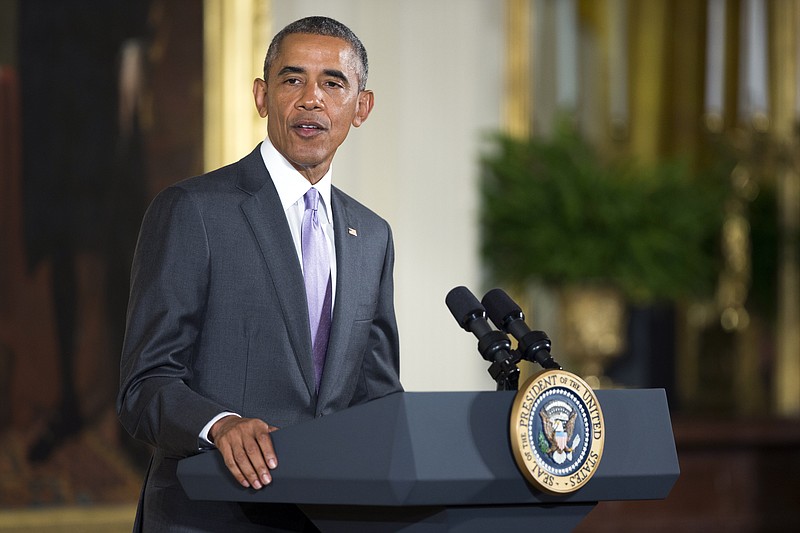You'll never hear him say it, of course, but President Barack Obama may have learned from the huge mistake he made when - against the advice of his military advisers - he withdrew all U.S. troops from Iraq in 2011.
On Thursday, he announced he would leave a force of 5,500 troops in Afghanistan when his presidency ends. More than two years ago, he said all U.S. troops - save an embassy-based presence - would be gone by the time he leaves office.
In Iraq, the lack of U.S. troops opened the door for Islamic State forces to fill the vacuum, gobble up territory and wreak horror across the country.
With Obama, political calculations are always the underlying motives behind his actions. The withdrawal of troops from Iraq was made with his re-election in 2012 in mind. The previous announcement of the withdrawal of troops from Afghanistan before the end of his term was made both to help the 2016 Democratic presidential candidate and to cement the mantle of peacemaker he believes he deserves.
Now, though, with the rise of the Islamic State surely in the back of his mind and the Taliban's recent resurgence in Afghanistan, he looked to be on the hook for the loss of peace in two countries. Not a very good record for a Noble Peace Prize winner.
Obama had been hearing for months from his military leaders that Afghan forces would need more help to keep the Taliban at bay and maintain the achievements the 14-year U.S. effort in the country had wrought. So the oft-trotted out phrase "conditions on the ground have changed" - the Taliban resurgence and the cooperation of Afghanistan President Ashraf Ghani - provided good cover for the move.
While he does "not support the idea of endless war," he said, Afghan forces are "not as strong as they need to be," the Taliban have "made gains" and the situation is still "very fragile."
"While America's combat mission in Afghanistan may be over," Obama said, "our commitment to Afghanistan and its people endures."
However, the move lets the president spin whatever happens after he leaves office to his advantage.
If the presence of the troops is enough to hold back the Taliban, then ex-President Obama can cite the wisdom of his decision. If the Taliban continues to be resurgent, he can rightly say the disposition of troops in the country is up to the current president.
The president is right that the situation in Afghanistan still demands a solid U.S. presence, but it's a shame political calculations seemed to make the decision for him.
